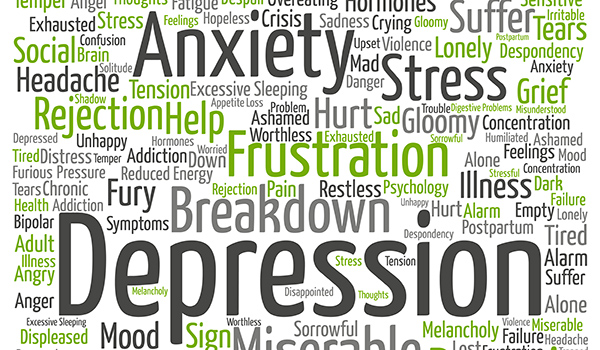
To say we live in stressful times is an understatement. The news is filled with the latest updates on how many people have died from the COVID-19 infection. The stock market is crashing. Every day comes with a new travel ban or restriction. We are supposed to stay 6 feet from each other. For those who have kids at home, you have to think about how you will manage childcare and responsibilities while staying productive with your remote work.
And perhaps, the reduction in your physical work hours means that your income – the very income you need to pay your bills- will take a hit.
Just one of these scenarios is enough to experience anxiety. And with all of them happening at once for many people, it is understandable that you will be stressed out and confused. How do you deal with anxiety and stress in the midst of unprecedented difficulty? In today’s post, we’ll talk about how you can deal with anxiety during the current COVID-19 pandemic.
Dealing with anxiety during a global crisis
In regular life, it is normal to experience some level of anxiety. However, if the current crisis and its impact on your family is causing you to experience anxiety that is overwhelming and uncontrollable, it is time to seek intervention.
We will talk about anxiety disorders later on in this post.
For now, let’s talk about how you can reduce the event-related anxiety you may be feeling right now.
- If you are anticipating an income reduction, now is the time to start calling your utility companies, mortgage lenders, and credit card companies. A lot of these companies are providing some relief for users with deferred payments and allowing you to pay part of your bill instead of the whole thing. Some internet companies are even offering free internet for the next 30-60 days. Take advantage of these provisions. If you don’t call, you will never know this is something they offer. So call them and talk to them.
- Most workplaces have moved to remote work unless you’re an essential worker who needs to be onsite. If you feel you would benefit from working remotely but don’t have that option yet, talk to your employers about working remotely. Check out our tips in this post on how to have an effective remote workday.
- Shut off anxiety-inducers. While it’s important to stay abreast with the news, it doesn’t have to be on 24/7 at your house. Use your time to finish work projects, read a new book or article, meditate, or connect with your family.
- We may be socially isolated, but it doesn’t mean you can no longer socialize. Set up virtual hangouts with friends. These connections can go a long way to help you feel less isolated.
- If you have extra free time after you’ve completed work, you can use that time to learn that hobby you’ve been wanting to learn.
- Get exercise. Exercise releases endorphins which interact with your brain cells to give you a sense of well-being. Also, because you may be only allowed to move in a limited geographic area, it is important that you get the exercise you need to maintain general health.
- It’s okay to admit that you are scared, overwhelmed, and confused. The truth is that you are not alone in those feelings. The first step to overcoming anxiety in such difficult times is to admit the truth to yourself first so you can get the help you need.
- Journal your feelings. There is research that shows that people experiencing trauma find better ways to cope when they are able to identify and journal their feelings.
Dealing with overwhelming anxiety
If you’re currently dealing with overwhelming anxiety that is now interfering with your ability to work, we recommend that you see a psychiatrist. While it’s normal to experience some anxiety in life, it is not normal for it to disrupt your daily functioning.
Therefore you will want to talk to a mental health professional who will give you the tools to heal.
For people who have lived through a traumatic war-time/war-related experience, the current news could trigger symptoms associated with post-traumatic stress disorder (PTSD). If this is true for you, you need to talk to a mental health professional as well.
What happens when you don’t deal with overwhelming anxiety?
Not dealing with overwhelming anxiety related to the current pandemic can lead to other health problems. Unchecked anxiety contributes to:
- Heart problems
- Irritable Bowel Syndrome (IBS)
- Depression
- Different types of phobias
- Panic disorders
Each of these health conditions ultimately will cost you thousands of dollars in productivity and healthcare costs.
Thus, it’s important that you get the professional medical help you need right now. Blunt effects of overwhelming anxiety now before it turns into a more serious health problem.
Remember – mental health is health too. If you fractured your arm or leg, you would try to get to a hospital as soon as possible to get that arm or leg cast. Your mental health should be treated in the same way.

